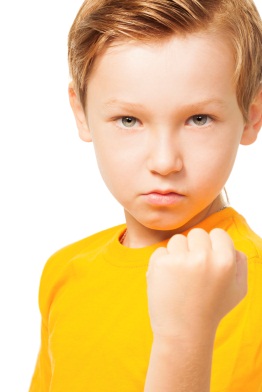 I was never a good fighter. I still remember the first time I got slugged. I was in the second grade, innocently talking with one the prettiest girls on the playground, who was, as it turned out, already engaged to a much older man in the third grade. Their prenuptial agreement was made painfully clear after he spun me around and punched me right on the nose! I vividly remember that mind-numbing experience. My brain scrambled, I tried to process what was happening. My face was screaming for help from the rest of my body, so I instinctively threw a punch toward his proboscis.
I was never a good fighter. I still remember the first time I got slugged. I was in the second grade, innocently talking with one the prettiest girls on the playground, who was, as it turned out, already engaged to a much older man in the third grade. Their prenuptial agreement was made painfully clear after he spun me around and punched me right on the nose! I vividly remember that mind-numbing experience. My brain scrambled, I tried to process what was happening. My face was screaming for help from the rest of my body, so I instinctively threw a punch toward his proboscis.
Bad decision! Turns out, he was not only older and bigger, he was an experienced pugilist. He skillfully ducked my punch and landed another shot to the side of my face. In a rage I ran at him and wrestled him to the ground. Fortunately, Mrs. Hoover quickly separated us—but not before he got the best of me. The only consolation I had was the hope that my face had hurt his fists. (NASCAR hall of famer Cale Yarborough, when confronted by officials about his part in a track-side brawl with Bobby Allison, said, “I didn’t punch him. He took off his helmet and commenced to beating on my fist with his nose!”)
But one of the strangest boyhood customs I experienced growing up was the shoulder punch. It goes something like this: your buddy walks up to you and says, “Hey, how you doin?” and then outta nowhere—POW! He punches you on the upper arm. The ultimate goal was to deliver a Charlie horse, and man, it hurt!
Early on in my grade school experience, I returned the gesture, assuming it was a friendship thing. We both laughed nervously and acted as though we enjoyed it, but all the while I was thinking, “This is very strange!”
Now, even as an adult, I still encounter those who use a verbal punch as a form of social engagement. “Hey, Grubb! You’re getting a little thin on top, aren’t you?”
What do you say to something like that? Do you punch back?
“Really? I hadn’t noticed! Thanks for pointing that out, Captain Obvious!”
I’ve learned the hard way to simply absorb the dreaded shoulder punch and elevate the conversation. I’ve taken my cue from the one I most admire, Jesus. He teaches two very important principles of relationship to which I aspire (and sometimes actually manage to put into practice).
The first principle is to care about others at least as much as I care about myself. Jesus said,
“’Love the Lord your God with all your passion and prayer and intelligence.’ This is the most important [commandment], the first on any list. But there is a second to set alongside it: ‘Love others as well as you love yourself.’”
Matthew 22:37-38 The Message
The second principle is to humble myself before others. The Bible also says:
“Be agreeable, be sympathetic, be loving, be compassionate, be humble. That goes for all of you, no exceptions. No retaliation. No sharp-tongued sarcasm. Instead, bless—that’s your job, to bless. You’ll be a blessing and also get a blessing.”
1 Peter 3:8- 9 The Message
When I can combine these two characteristics, I become a safe person to be around. Even when others are clumsy or hurtful, lacking social skills or grace, I’ve learned that God’s grace and patience allows me to think the best of them and move beyond their social awkwardness. I would encourage us all to extend more grace to those we encounter each day.
We’ll have fewer bruised shoulders, bruised egos and bruised hearts.
Read Ron’s column, Simple Faith, each Saturday on the Faith Page (page 3) of the Lancaster Eagle Gazette, or visit www.lancastereaglegazette.com.
